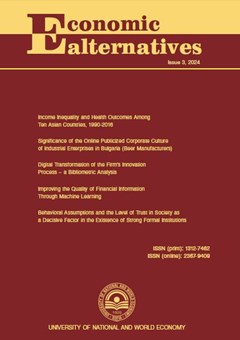Behavioral Assumptions and the Level of Trust in Society as a Decisive Factor in the Existence of Strong Formal Institutions
Author: Ruben Gevorgyan
Abstract
In the article, the authors demonstrate through the prism of the empirical method of research that it is the behavioral assumptions of people and this or that level of trust in society that play a key role in the existence of effective formal institutions. The article discusses various aspects of behavioral assumptions, which sometimes cannot be explained by the concept of a „rational person“. As such an example, the concept of “petty foul tactics” is discussed, as a kind of well-described in the literature phenomenon of opportunistic behavior. In the article, the authors analyzed the correlation of indicators, “petty foul tactics”, the level of trust in society, and also identified seven behavioral stereotypes. The key conclusion that the authors of the article come to is that the well-being of a particular country depends on the ratio of people who adhere to certain stereotypes.

